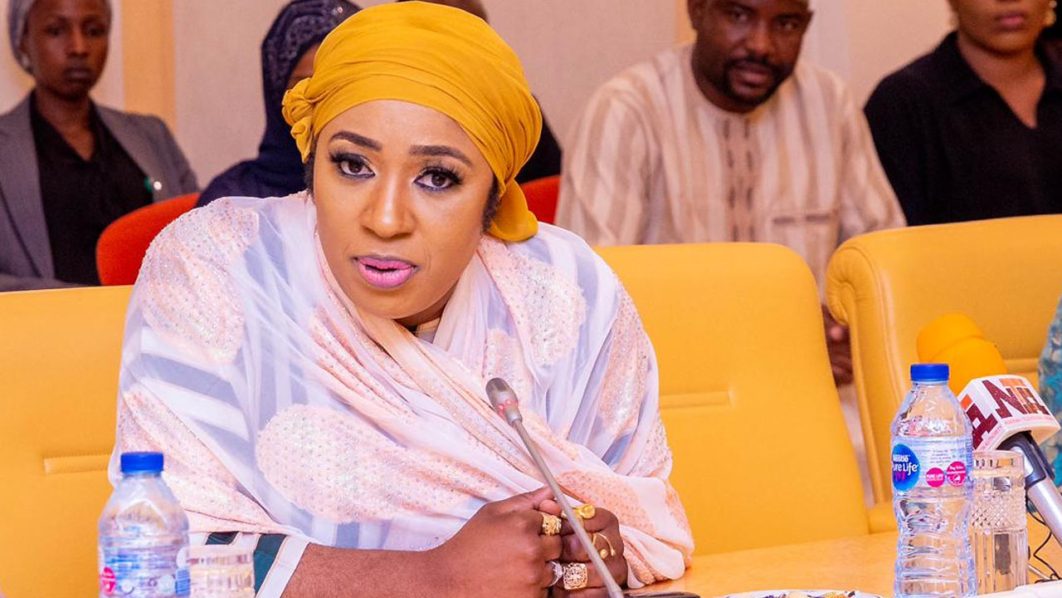
In the fight against corruption, whistleblowers serve as courageous guardians of integrity and accountability, often risking their livelihoods and personal safety to expose wrongdoing.
This is evident from the bold and courageous move by Dr Betta Edu to expose the sleaze in her ministry which exposed the illegal transfer by the disgraced former National Co-ordinator and Chief Executive Officer of the National Social Investment Programme Agency, Halima Shehu, who was arrested in connection with ₦44billion missing money from the coffers of the agency.
However, despite Betta Edu’s crucial role in uncovering malfeasance and promoting transparency, she was however been subjected to myriads of criticism and paid propaganda against her which led to her suspension.
This article delves into the compelling reasons why whistleblowers on corruption must be protected, and the far-reaching benefits of safeguarding those who dare to speak out like the suspended Humanitarian Minister, Dr Betta Edu.
It is also a clarion call on President Bola Ahmed Tinubu not to play to the gallery of disgruntled political neophytes and some unscrupulous elements within his party who are hell-bent at ensuring that his presidential ratings and assessment are nothing to write about.
First and foremost, protecting whistleblowers is essential for deterring corruption and promoting a culture of transparency and accountability. Whistleblowers play a pivotal role in uncovering fraud, embezzlement, bribery, and other forms of misconduct that undermine public trust and erode the foundations of democracy.
By providing legal protections and safeguards for whistleblowers, governments can incentivize individuals with insider knowledge to come forward without fear of reprisal, thereby facilitating the detection and prosecution of corrupt practices.
Moreover, protecting Betta Edu is crucial for enhancing the effectiveness of anti-corruption efforts and strengthening institutional integrity. Whistleblowers often possess valuable information and evidence that can lead to the prosecution of corrupt officials, recovery of stolen assets, and implementation of corrective measures to prevent future abuses. By shielding whistleblowers from retaliation and ensuring their confidentiality, governments can empower them to cooperate with law enforcement agencies, anti-corruption bodies, and other oversight mechanisms, thereby bolstering the credibility and efficacy of anti-corruption initiatives.

President Bola Ahmed Tinubu should know that protecting the passionate Betta Edu is instrumental in promoting a culture of accountability and fostering public trust in government institutions. When individuals witness corruption or misconduct within their organizations, they face a moral dilemma between remaining silent or risking their careers and personal safety to expose wrongdoing.
Edu chose the latter yet, 11 weeks after, nothing has been done to recall her to her position. President Tinubu’s administration no longer has highlights. None of the Minister’s seems to be working because of the fate that befell the star girl of this administration.
By providing legal protections, whistleblower hotlines, and support mechanisms, governments can signal their commitment to upholding the rule of law and protecting those who act in the public interest. This, in turn, encourages greater transparency, ethical conduct, and accountability among public officials and private sector actors alike.
Additionally, protecting whistleblowers is essential for safeguarding democracy and promoting civic engagement. Whistleblowers are often hailed as heroes for their bravery in speaking truth to power and holding those in positions of authority accountable for their actions. However, without adequate protections, whistleblowers are vulnerable to retaliation, harassment, and ostracism, which can have a chilling effect on freedom of speech and dissent.
By enacting whistleblower protection laws and fostering a supportive environment for whistleblowers, governments can nurture a culture of civic responsibility, democratic participation, and public engagement in governance processes.
In conclusion, the investigation by the EFCC should be made public and Betta Edu, if found innocent should be reinstated.
President Tinubu should muster the political will to right the wrong done by his hasty decision to relieve Betta Edu of his Ministerial position.
The imperative for protecting whistleblowers on corruption is unequivocal and far-reaching. Whistleblowers play a vital role in exposing corruption, promoting transparency, and holding the powerful to account.
By safeguarding whistleblowers from retaliation and providing them with the necessary legal protections and support, governments can bolster anti-corruption efforts, strengthen institutional integrity, and foster a culture of accountability and democratic governance.
It is incumbent upon governments, civil society organizations, and international stakeholders to prioritize the protection of whistleblowers as an essential component of the global fight against corruption and the promotion of a more just and equitable society.
And the likes of Dr Betta Edu should be encouraged and reinstated fully as the Honourable Minister of Humanitarian Affairs and Poverty Alleviation in Nigeria.
Dr Michael Ogbonna, a public affairs analyst, wrote from Lagos.
[ad unit=2]






